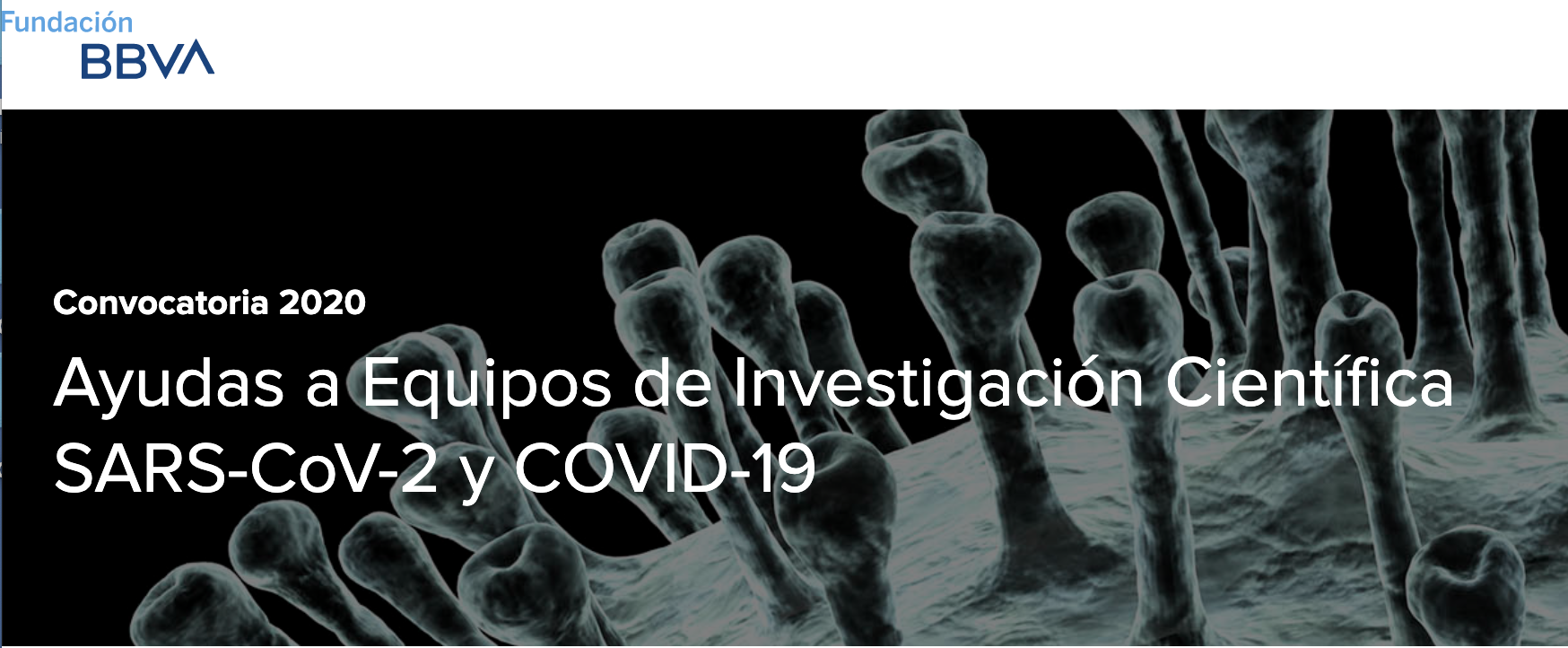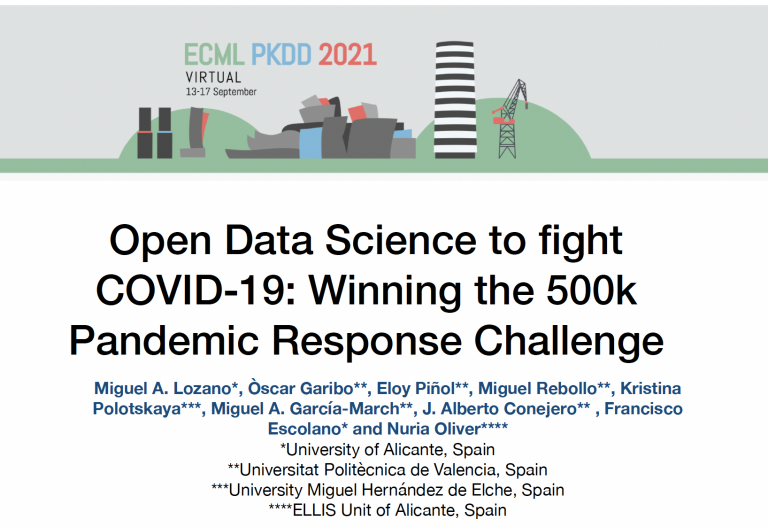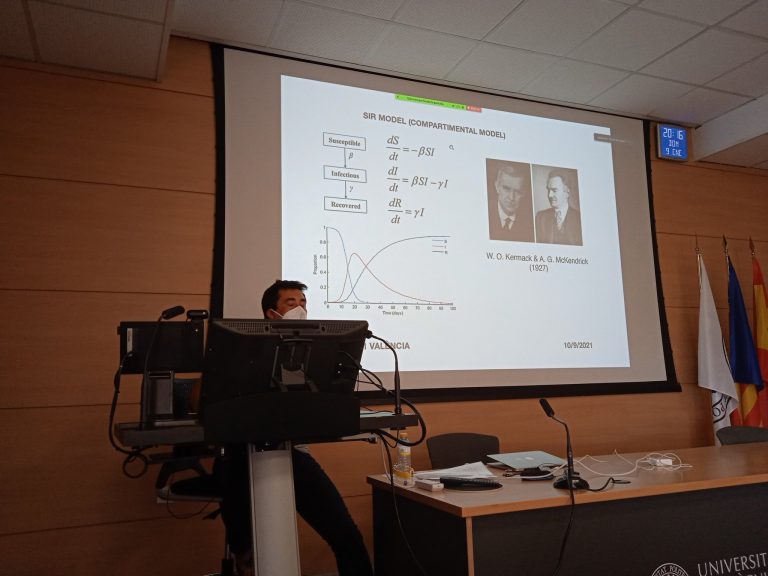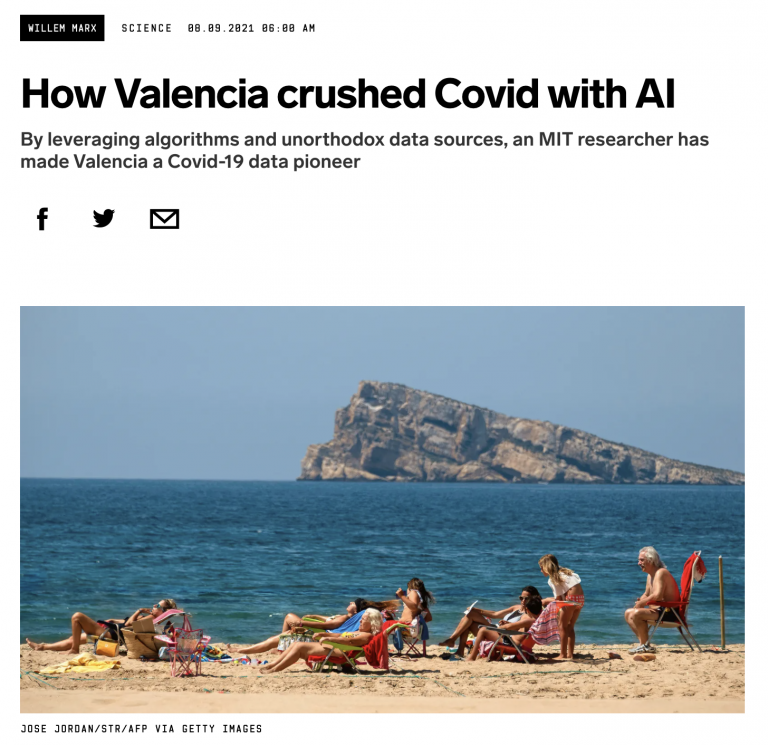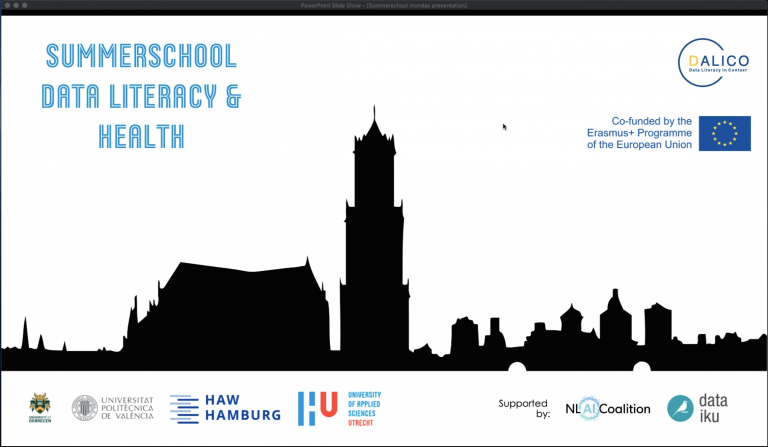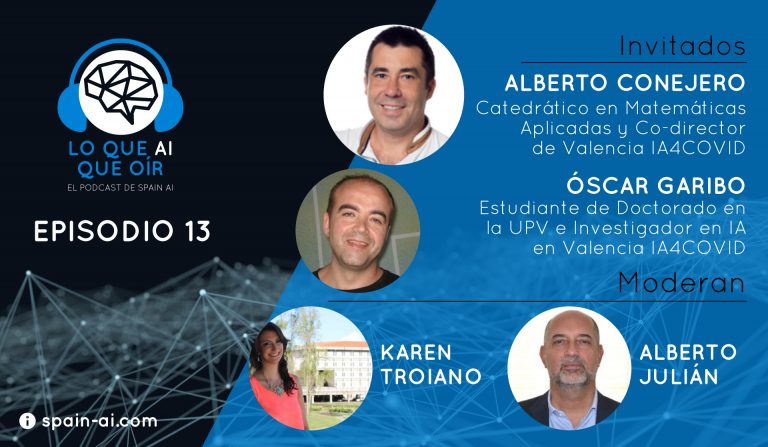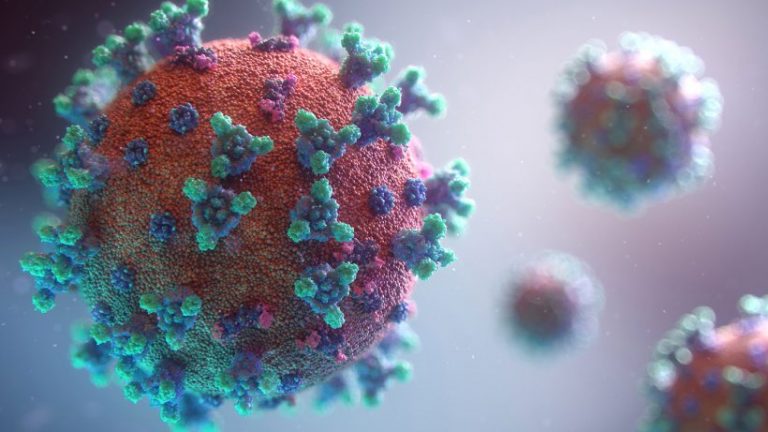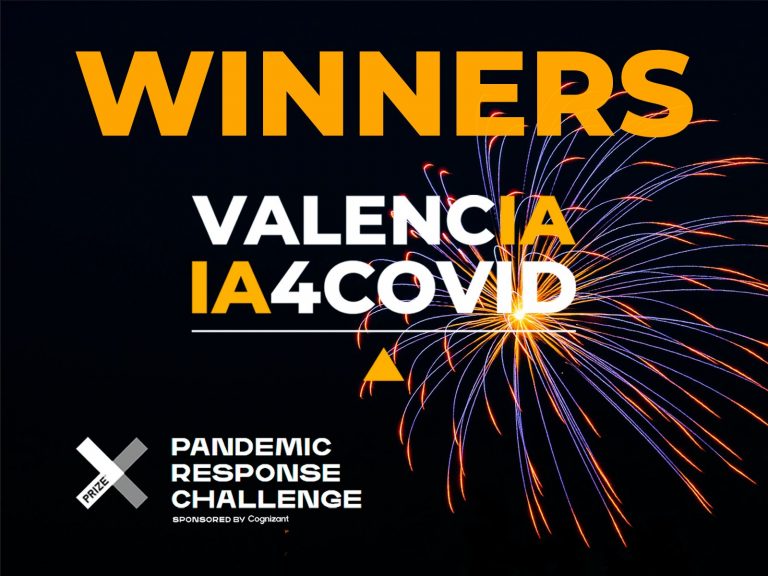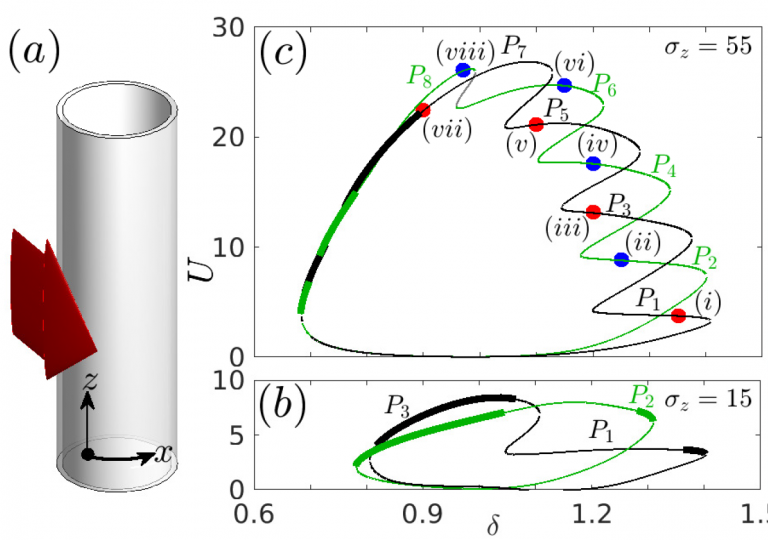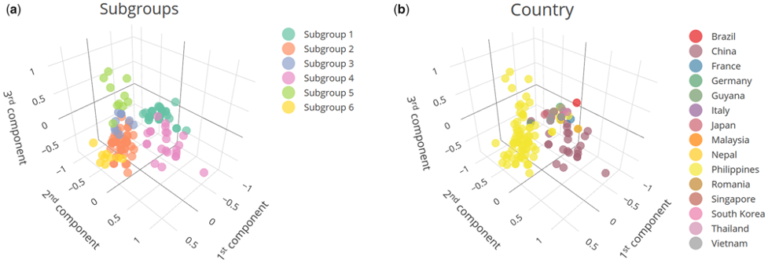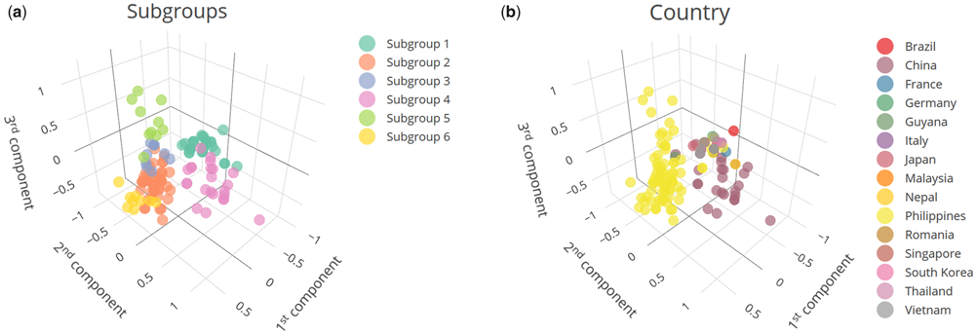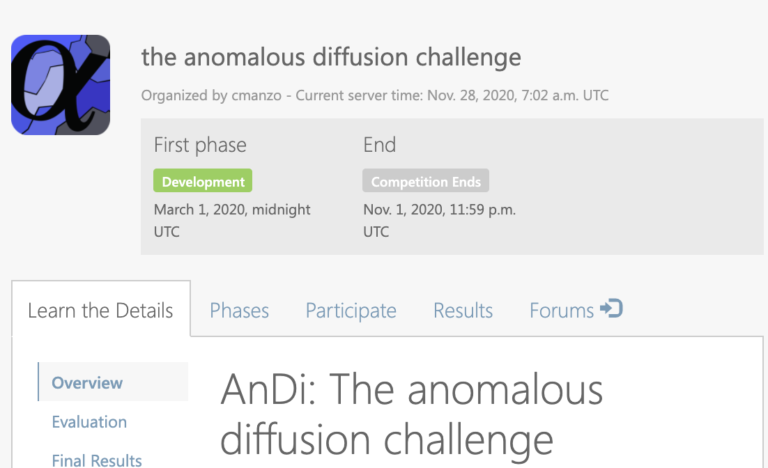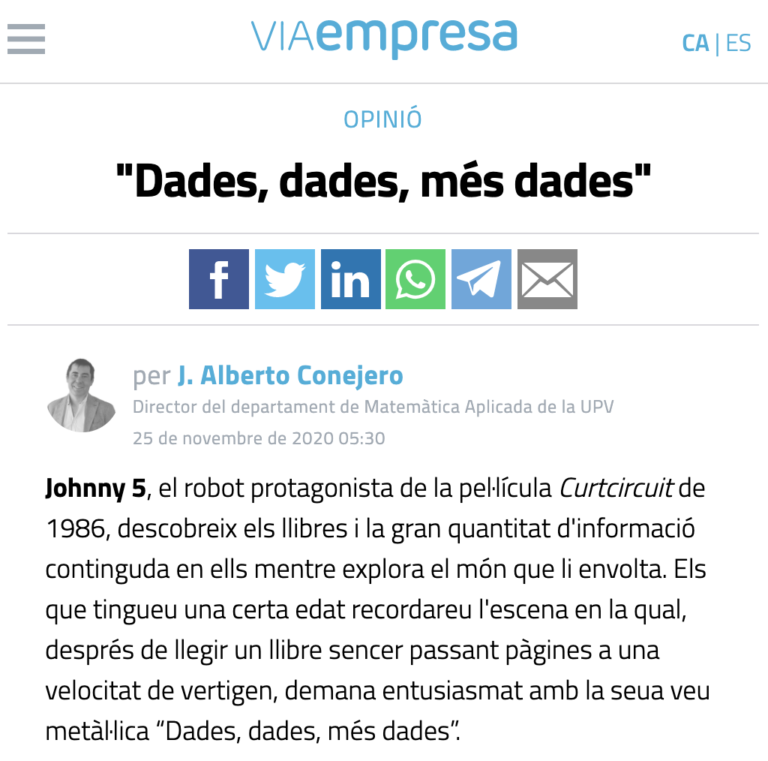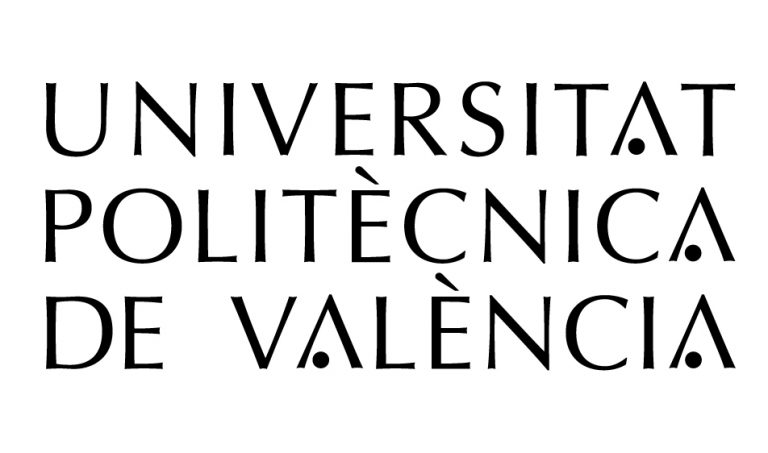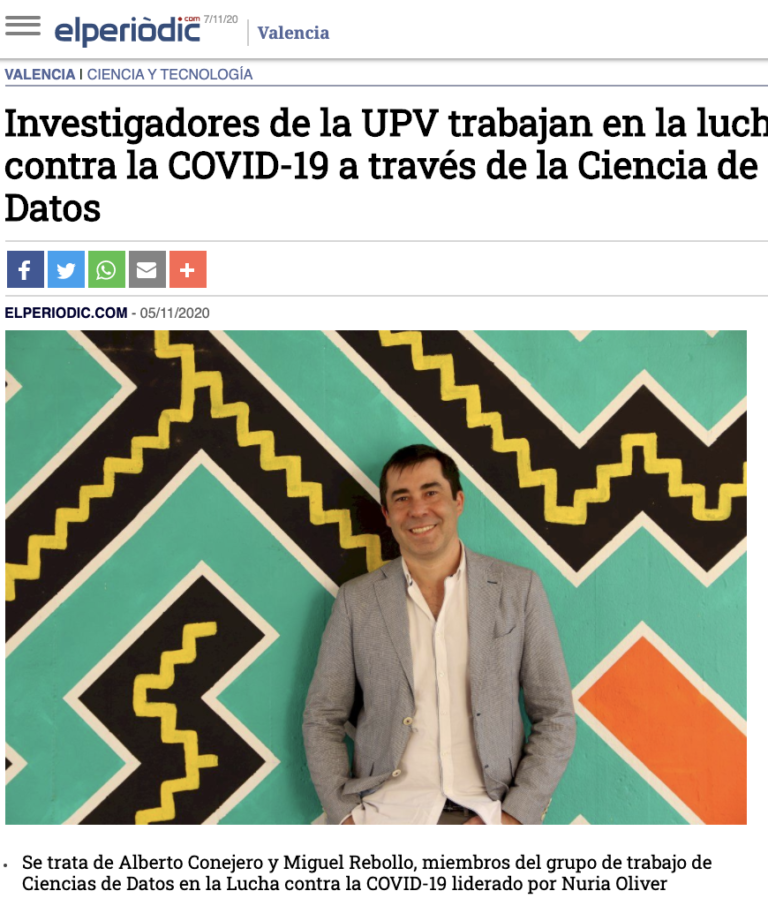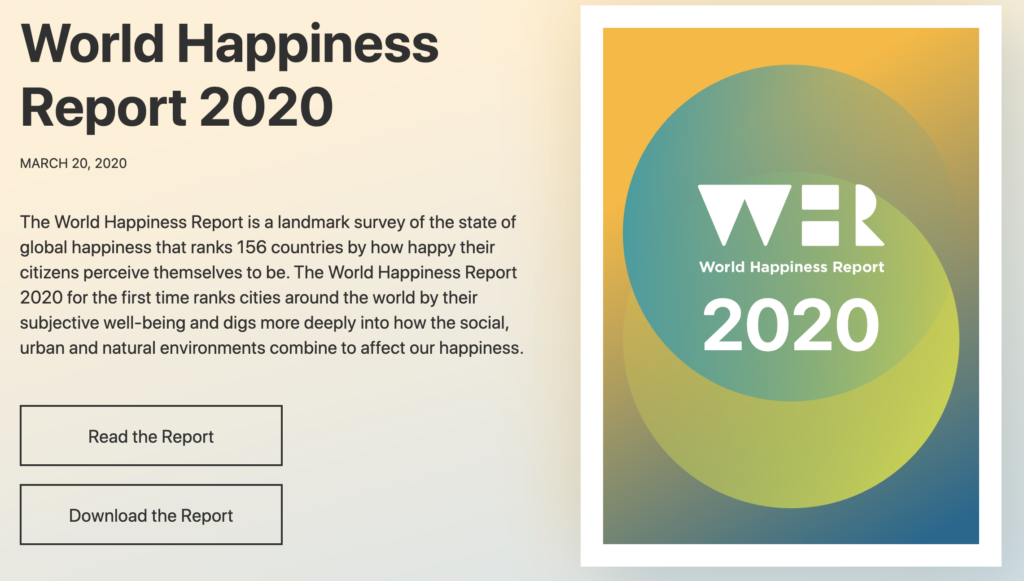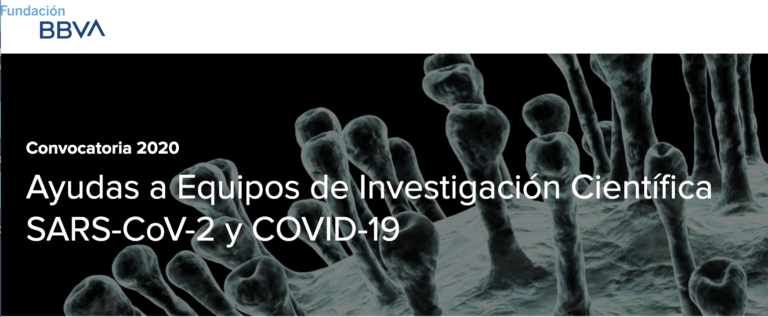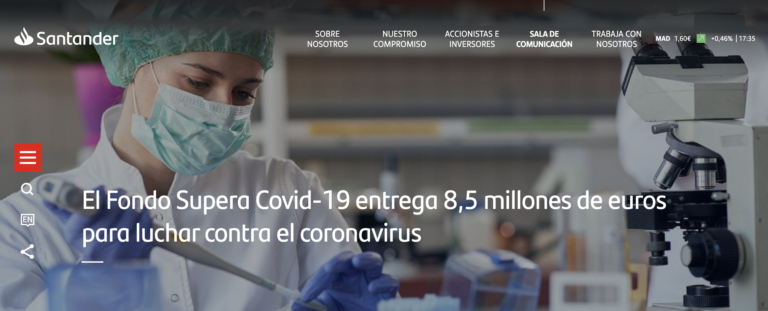Since April 2020, I have been involved in the Data Science Group COVID-19 of the València Region under the supervision of Nuria Oliver. This is a multidisciplinary team of volunteers that work side by side with the General Director of Analysis and Public Policies of the Presidency of the RValencia Region Government. The analysis for COVID-19 is coordinated with the Ministry of Health and the rest of the Councils involved. This working group is led by Nuria Oliver, Commissioner of the Presidency of the Generalitat for the Valencian Strategy for Artificial Intelligence and, especially, for the coordination of data intelligence before the COVID-19 epidemic in the Valencia Region.
They are part of the group of experts from the Jaume I University, the University of Valencia, the Polytechnic University of Valencia, the Miguel Hernández University, the University of Alacant, the CEU Cardenal Herrera University, Fisabio, and Microsoft, with the collaboration of Esri, the INE, the Secretary of State for Artificial Intelligence and the three most important mobile phone companies in the country.
Our project is a collaborative work that we have developed voluntarily and altruistically since the beginning of the crisis caused by the pandemic, professors from Valencian universities. The research entitled «Data science against Covid-19» brings together the participation of civil society (through a citizen survey), experts from the academic-research environment, and public administration, with the aim of providing information so that the those responsible for public crisis management can make informed decisions based on scientific evidence obtained from data analysis. This group is divided into three priority areas with their respective work coordinators: (1) analysis, visualization, and modeling of mobility data, (2) epidemiological models and (3) data science applied to COVID-19. There, I work in epidemiological models with Antonio Falcó, Miguel Rebollo, Miguel A. Lozano, Emilio Sansano, Xavier Barber, Miguel A. García March, and Francisco Escolano.
This is the web page of our data research group http://infocoronavirus.gva.es/es/grup-de-ciencies-de-dades-del-covid-19-de-la-comunitat-valenciana
We have received also funding from CRUE-Santander Supera CoVID-19 fund
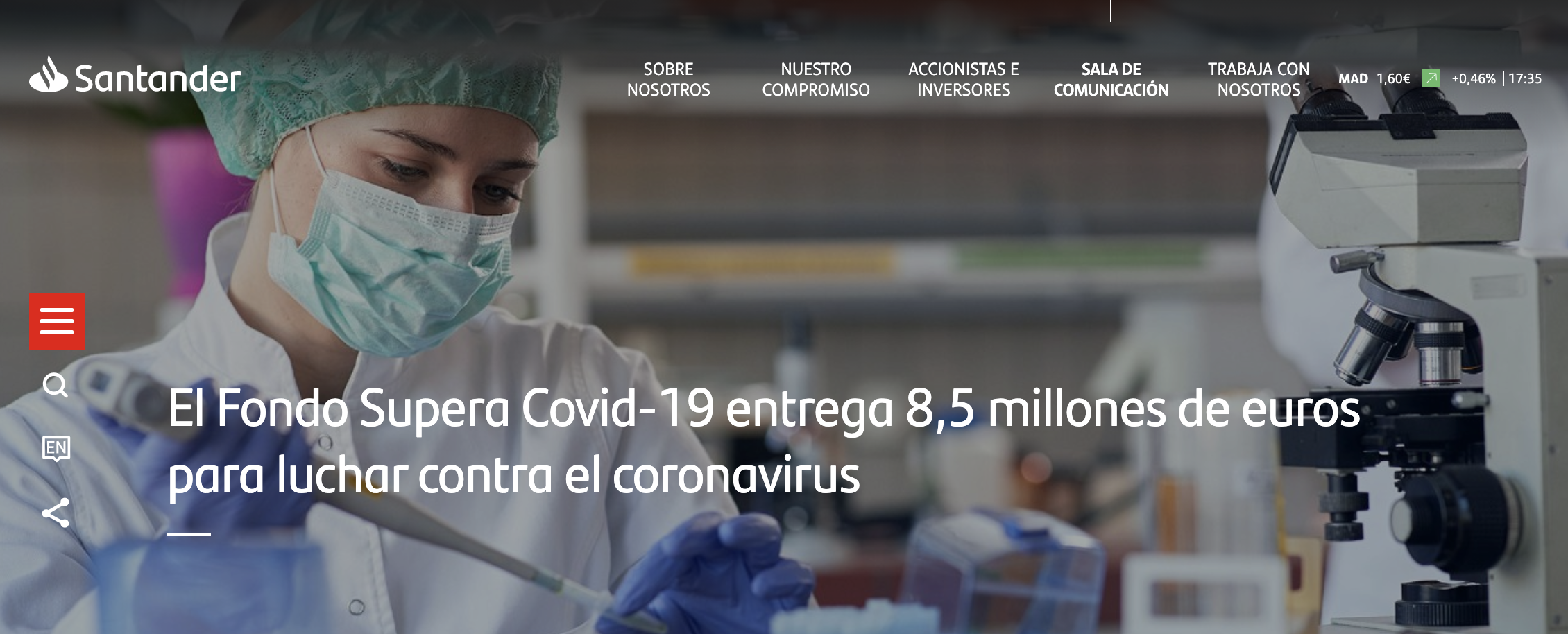
and from FBBVA SARS-CoV-2 and COVID-19 fund.
